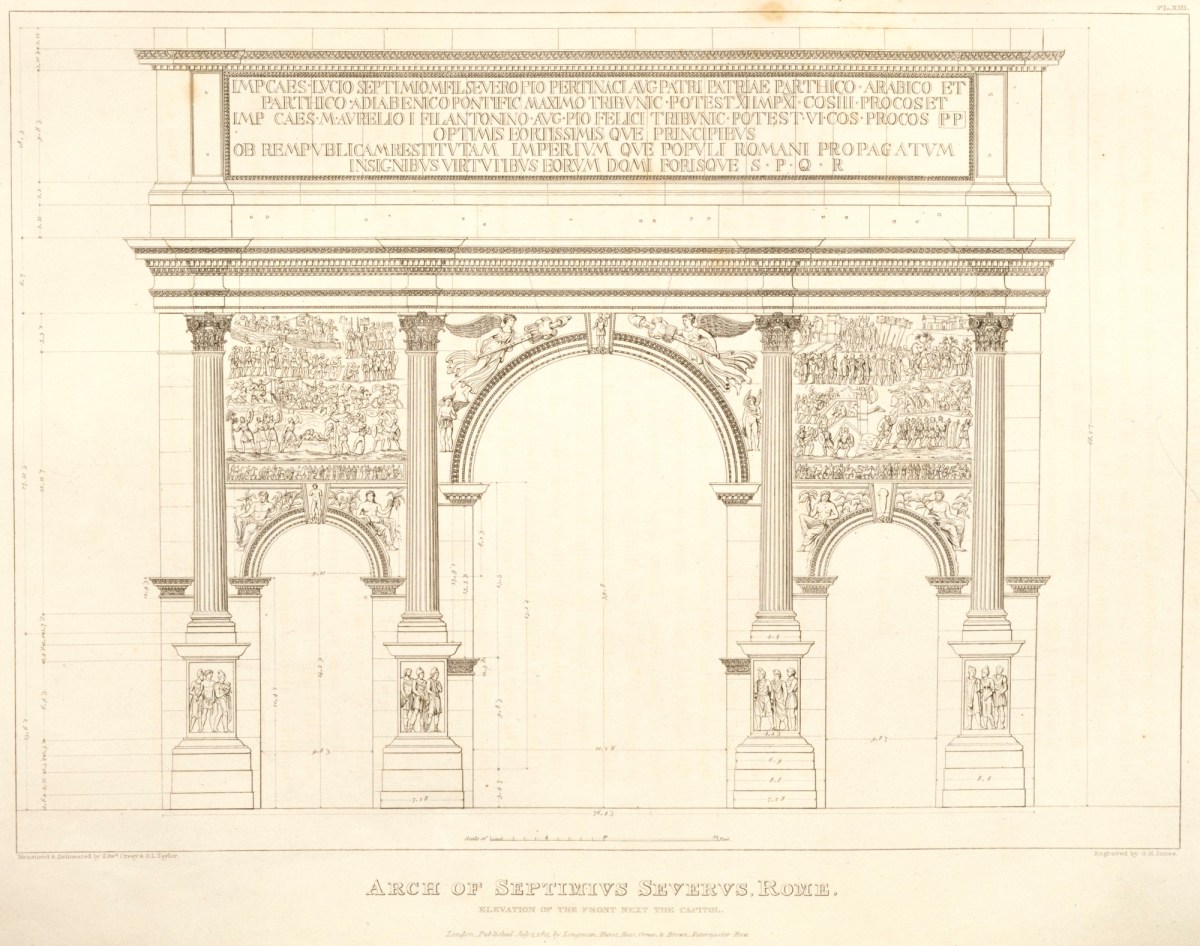
Arch of Septimius Severus, Rome elevation of the front next the
Definition. Lucius Septimius Severus was Roman emperor from April 193 to February 211 CE. He was of Libyan descent from Lepcis Magna and came from a locally prominent Punic family who had a history of rising to senatorial as well as consular status. His first visit to Rome was around 163 CE during the reign of Marcus Aurelius and Lucius Verus.
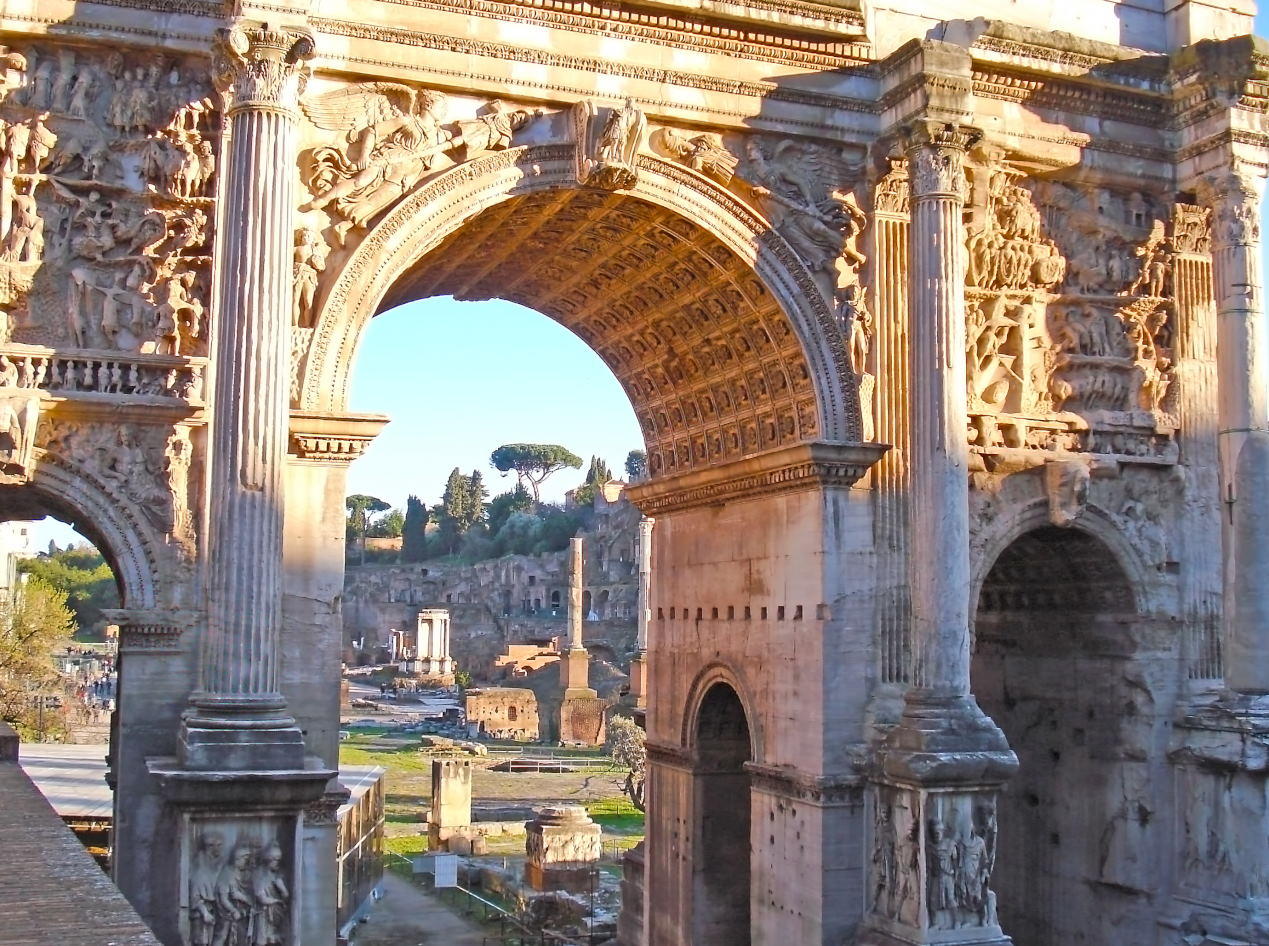
Arch of Septimius Severus Colosseum Rome Tickets
The arch is about 23 meters in height and 25 meters in width, raised on a base of travertine marble.Moreover, the Arch of Septimius Severus is made of a very rare and expensive Greek marble, called Proconessian, which was extracted nearby the city of Athens and very much in vogue during the reign of Septimius Severo.. The arch features several decorative scenes, depicting military campaigns.

Arch of Alexander Severus, Dougga (Illustration) Ancient History
This argument rests on four elements common to imperial fora: the arch of Severus creating a monumental entrance into a self-contained and repaved forum, the basilicas Aemilia and Julia standing in for the usual porticoes framing imperial fora, the restored temple of Vespasian inscribed with the names of Severus and Caracalla overlooking the.

Arch of Septimius Severus. Rome, Roman Forum, Arch of Septimius Severus.
Cartwright, Mark. " Triumphal Arch of Septimius Severus, Rome ." World History Encyclopedia. World History Encyclopedia, 27 Jun 2013. Web. 07 Jan 2024. Advertisement. The triumphal arch of Septimius Severus in Rome, erected in 203 CE to commemorate victory over the Parthians.

Forum Romanum Photo Archive
The Arch of Septimius Severus is a triple triumphal arch once located in the Roman Forum (Forum Romanum) near the Temple of Concordia and the Rostra. Inscriptions (originally in bronze letters) on both sides of the attic state that the arch was erected by the senate in 203 AD to commemorate victory by Septimius Severus over the Parthians and.
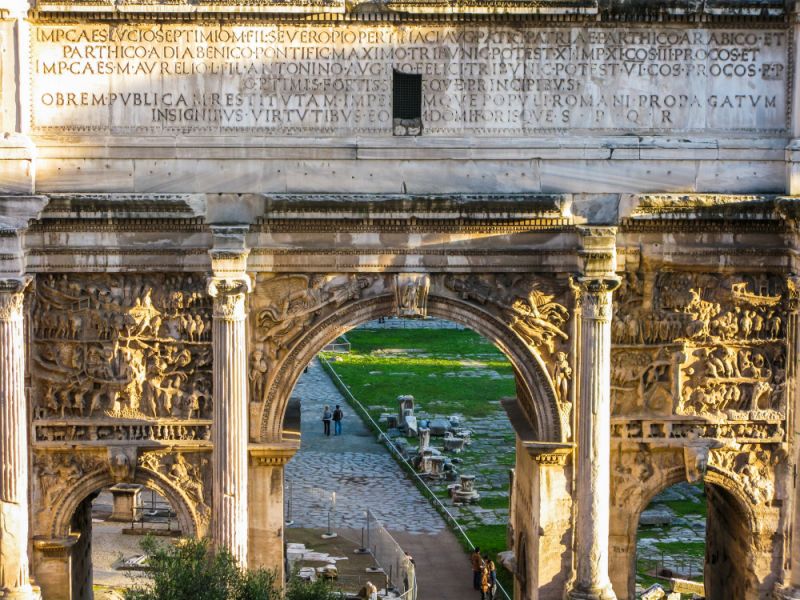
Rome's Arch of Septimius Severus to be restored Wanted in Rome
Septimius Severus (born April 11, 145/146, Leptis Magna, Tripolitania [now in Libya]—died Feb. 4, 211, Eboracum, Britain [now York, Eng.]) Roman emperor from 193 to 211. He founded a personal dynasty and converted the government into a military monarchy. His reign marks a critical stage in the development of the absolute despotism that characterized the later Roman Empire.
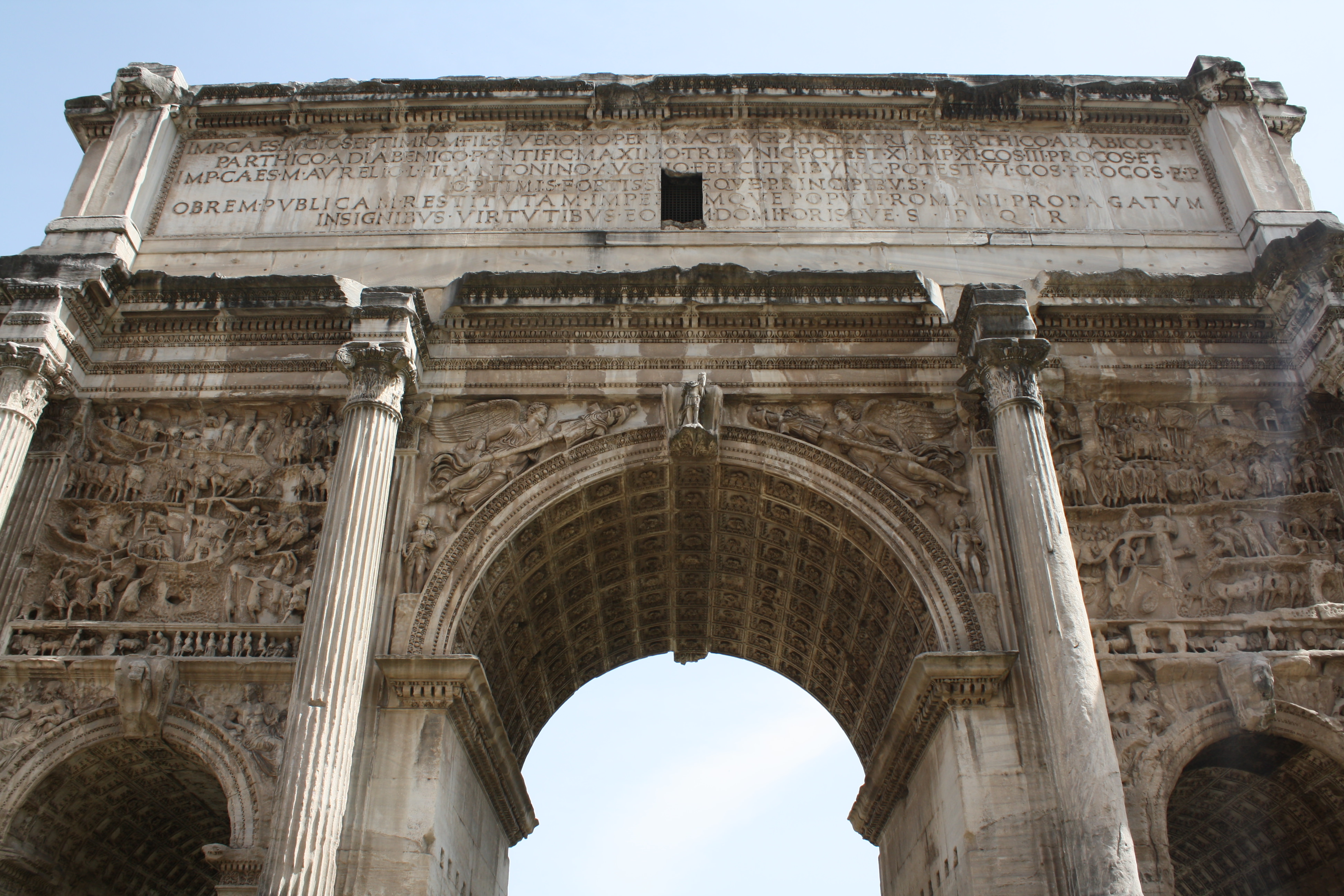
Relieving Arches of Roman Structures
Lucius Septimius Severus ( Latin: [sɛˈweːrʊs]; 11 April 145 - 4 February 211) was a Roman politician who served as emperor from 193 to 211. He was born in Leptis Magna (present-day Al-Khums, Libya) in the Roman province of Africa. [6] [7] As a young man he advanced through the customary succession of offices under the reigns of Marcus.
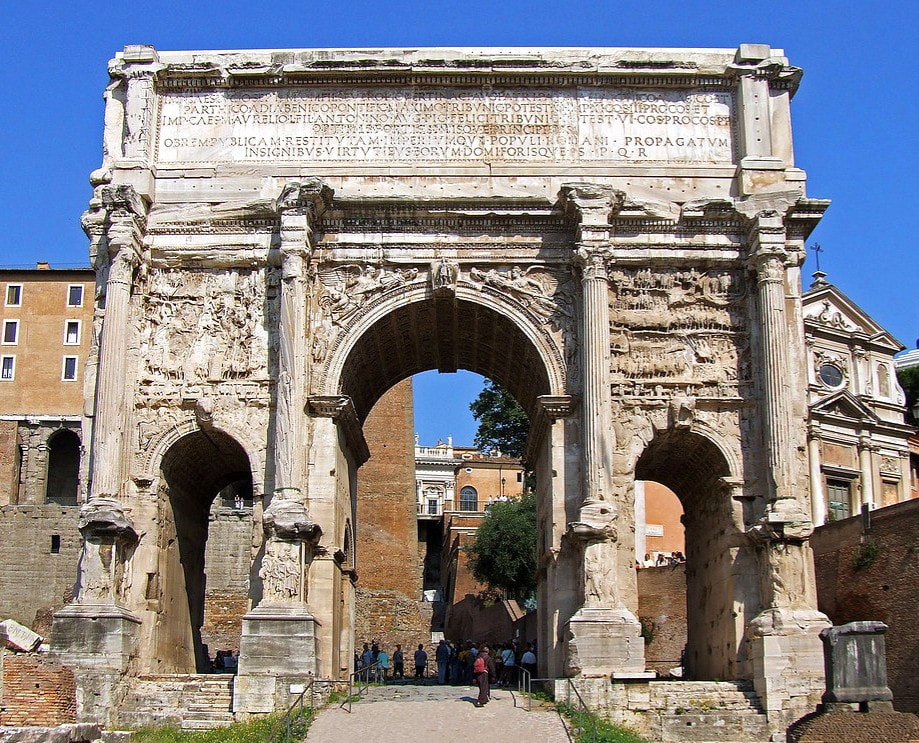
The Arch of Septimius Severus, Forum, Rome Walks in Rome (Est. 2001)
The Arch of Septimius Severus, portal to ancient Rome. by Dr. Darius Arya and Dr. Beth Harris. Triumphal Arch of Septimius Severus, 203 C.E., marble above a travertine base, roughly 23 x 25 m, Roman Forum, speakers: Dr. Darius Arya, executive director of the American Institute for Roman Culture and Dr. Beth Harris.
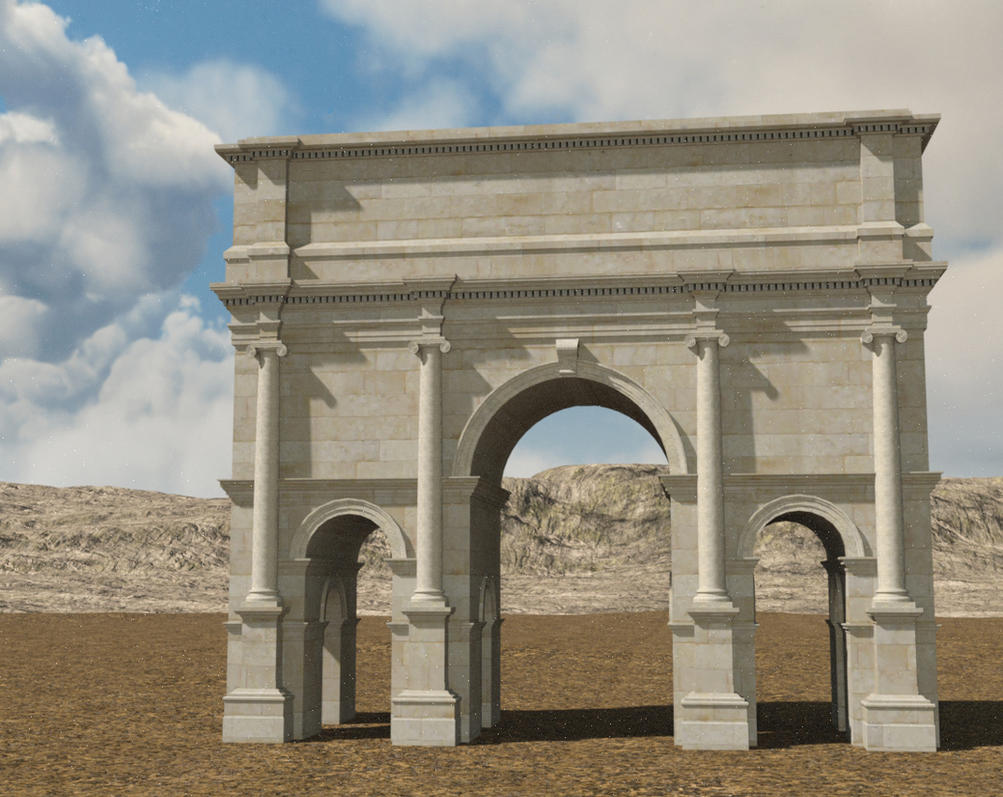
Arch Of Severus First Render, plain version by dazinbane on DeviantArt
The Severan arch in Lepcis Magna remains one of the most prominent and important architectural works in the Roman provinces. Its unusual quadrifons form - four faces - spanned the junction of the most important crossroad in the city, where the city's main east-west transverse - the decumanus maximus - and north-south axial street - the cardo - met, and its elaborate decorative.
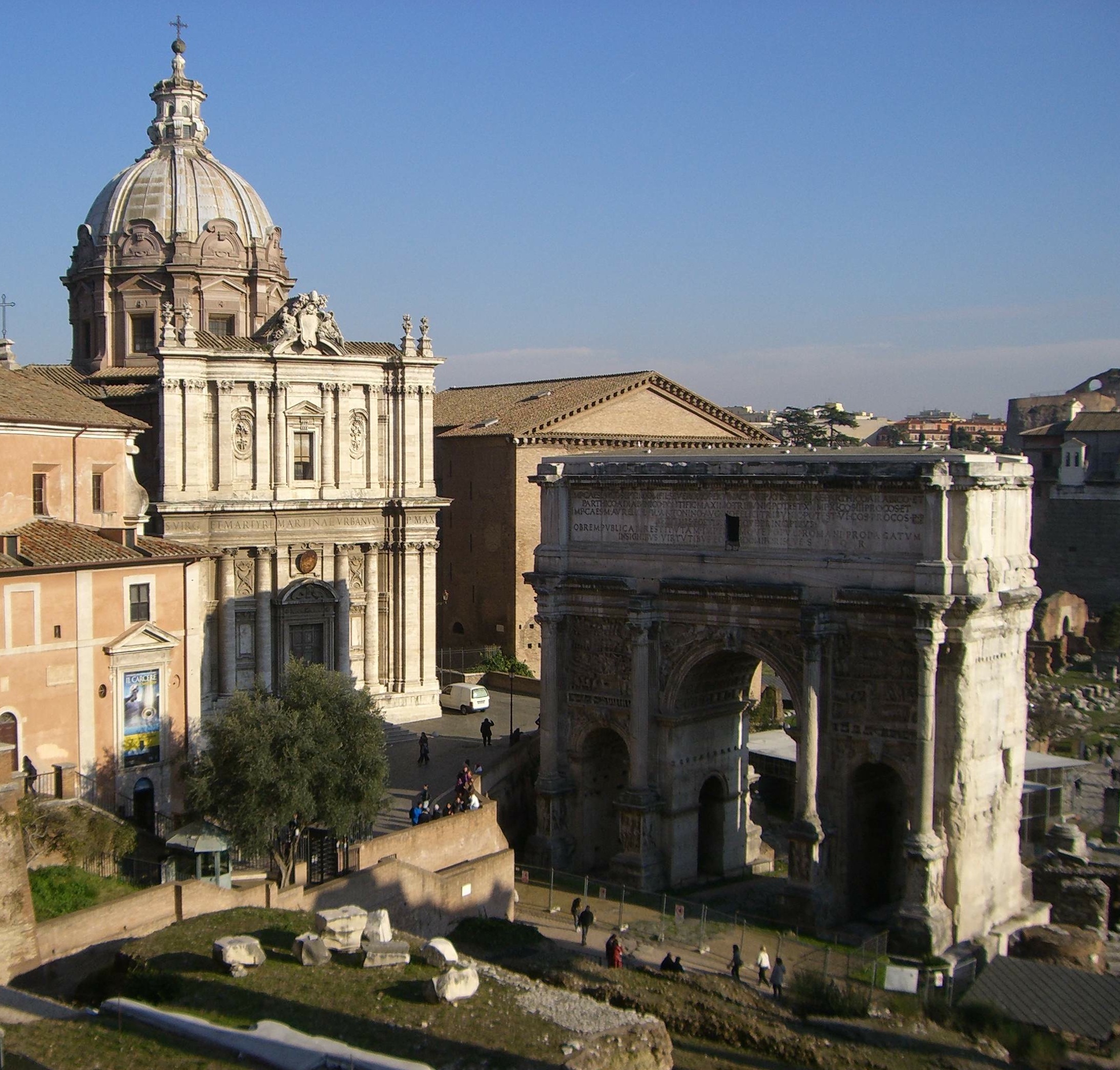
Roman Holiday Lisa Lance
The Arch of Septimius Severus, a marble structure in Rome built in 203, was erected to immortalize the victories of Emperor Septimius Severus and his sons, Caracalla and Geta, over the Parthians. The arch has suffered the passage of time, but its facade still has images of the Parthians' defeat in the years 194-195 and 197-199..
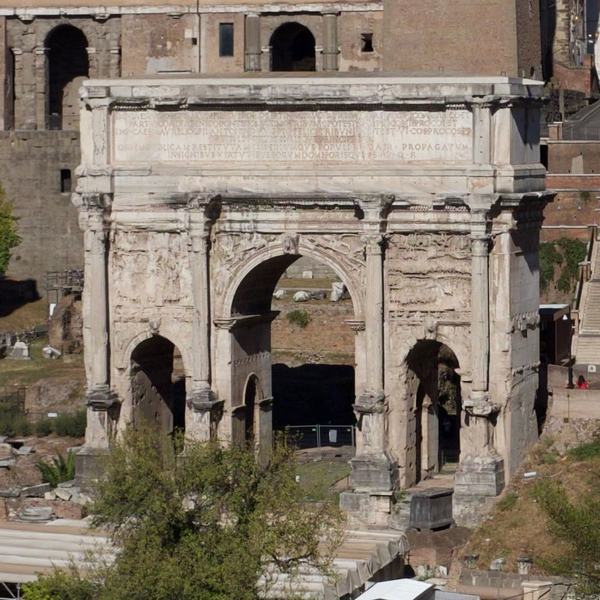
Rome, Forum Romanum, Arch of Severus, Seen from the temple of Faustina
The inscription on the arch of Septimius Severus in Rome (203 CE). It is repeated on both façades, and shows that the triumphal arch was dedicated to Emperor Septimius Severus and his two sons Caracalla and Geta who 'restored the Republic and expanded the dominion of the Roman people' in successful military campaigns against the Parthians.

Arch of Septimius Severus Arch of Septimius Severus is a w… Flickr
The Arch of Septimius Severus is a Roman triumphal arch built by the Emperor Septimius Severus to celebrate his military victories. Located in the Roman Forum, the Arch of Septimius Severus commemorates the short war between Rome and the Parthian Empire, fought by the Emperor between 194-199AD. The brief conflict resulted in victory for Severus.
The Arch of Septimius Severus was built in 203 CE to celebrate his
Arch of Severus, seen from the west. The Arch of Septimius Severus is arguably the most impressive monument on the Forum Romanum. Although the statues on the top of the arch are now lost, the reliefs have lost their painting, and two reliefs are almost illegible, the monument as a whole is very well-preserved. The emperor Septimius Severus came.

Arch of Septimius Severus stock image. Image of severus 57696337
Illustration. The Arch of Septimius Severus in Rome was built in 203 CE and was dedicated by the Senate and the People of Rome (S.P.Q.R.) to both Septemius Severus and his son Caracalla in honour of their victories against the Parthians, relief scenes of which, decorate the arch.
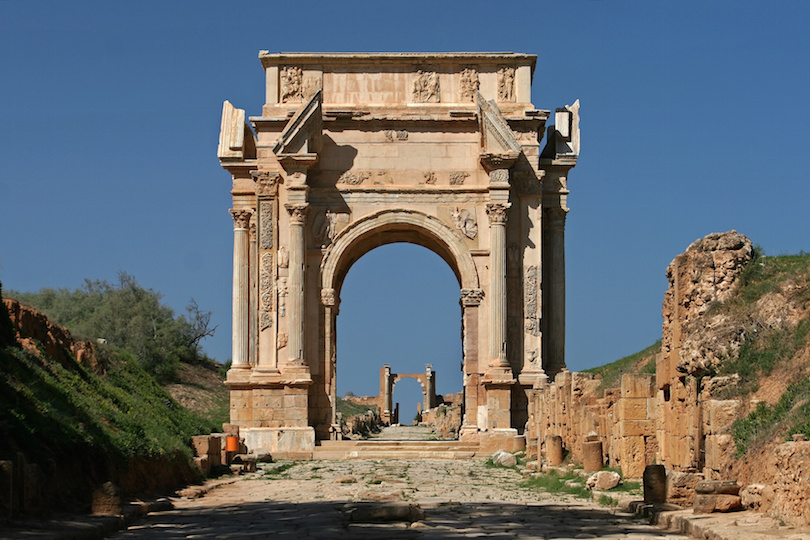
52 Ancient Roman Monuments (with Map & Photos) Touropia
It was Septimius Severus who erected the famous triumphal arch in the Roman Forum, an important vehicle of political propaganda that proclaimed the legitimacy of the Severan dynasty and celebrated the emperor's victories against Parthia in a lavishly sculpted historical narrative.
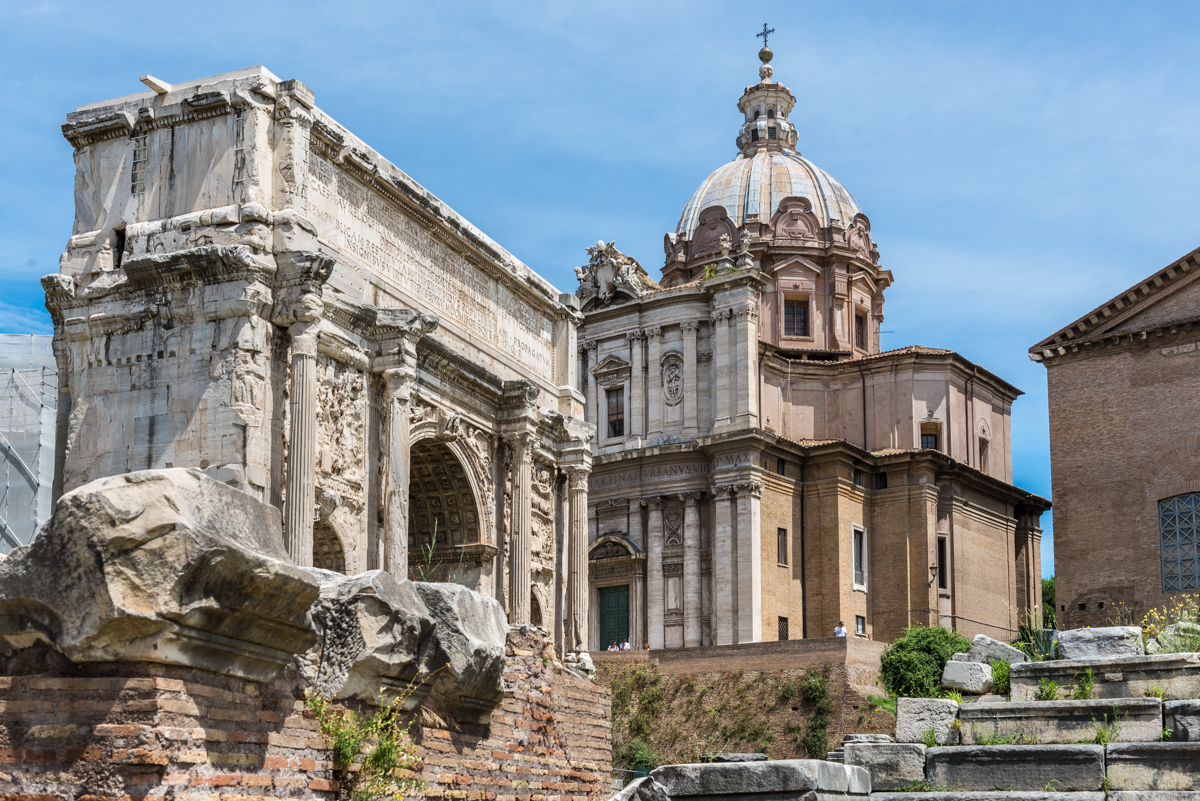
Arch of Septimius Severus TERRI BUTLER PHOTOGRAPHY
The Arch of Septimius Severus, erected in 203 CE, stands in Rome and commemorates the Roman victories over the Parthians in the final decade of the 2nd century CE. The triple triumphal arch was one of the most richly decorated of its type and even today, although badly damaged, it stands in the Forum Romanum as a lasting and imposing monument.